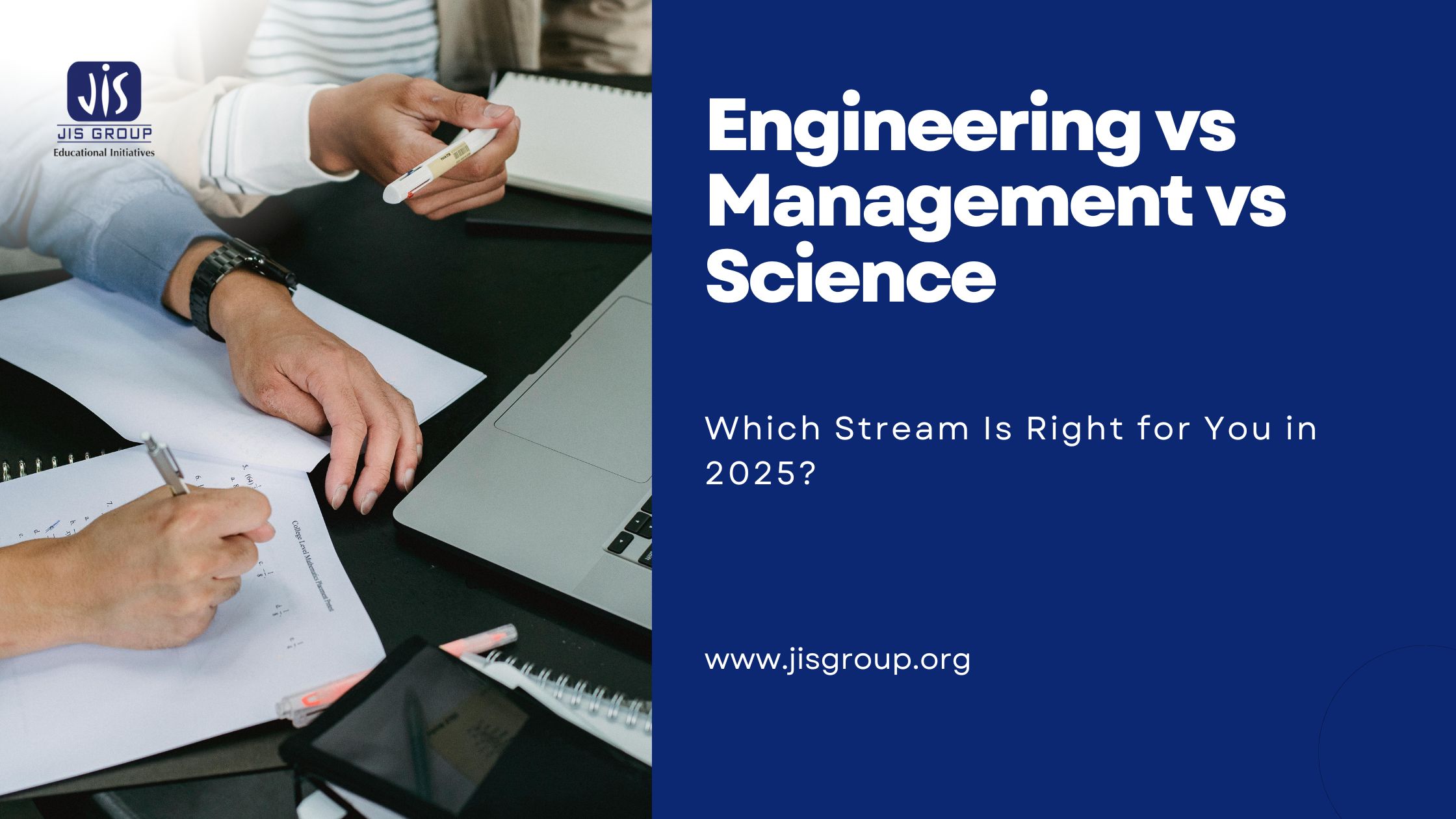In an increasingly dynamic and interconnected world, the choice between pursuing engineering, management, or pure science is not merely academic—it is a strategic decision shaping your professional trajectory and personal fulfilment. As we look toward 2025, evolving industries demand clarity of purpose and alignment with one’s strengths and aspirations. Here’s a refined, insightful guide to discerning which academic stream may suit you best.
1. Contextualising the Decision in 2025’s Landscape
Emerging technologies such as AI, synthetic biology, fintech, and sustainable solutions are reshaping global landscapes. Graduates today must be adaptable, interdisciplinary, and proactive learners. Accordingly, choosing between “engineering vs management vs science” should factor in evolving job profiles and skill demands—not just tradition. Whether you're attracted to designing systems, leading ventures, or unravelling nature’s mysteries, your ideal choice hinges on the nature of your intellectual curiosity and desired impact.
2. Understanding Your Disposition: Analytical, Strategic, or Inquisitive?
Making a wise choice involves self‑awareness. Identify your core tendencies:
-
Analytical‑problem‑solver (Engineering): Are you drawn to turning ideas into tangible solutions? Do you enjoy applying mathematics, physics, or programming to create functioning systems?
-
Strategic‑organiser (Management): Do you find yourself enthused by orchestrating teams, optimising resources, or understanding the behavioural drives behind decisions?
-
Curious‑discoverer (Science): Are you engaged by fundamental questions—exploring life’s building blocks, the cosmos, or natural phenomena—without the immediate pressure of application?
Answering these questions guides the way toward your natural scholarly terrain—not unlike mapping “career paths engineering management science” against your personal strengths.
3. Prospects, Structure & Outcomes: Industry vs Academia vs Applied Research
Engineering: This stream promises immersive, hands-on learning—designing bridges, algorithms, circuits, or advanced materials. Engineering graduates often enter product innovation, infrastructure development, technology firms, or startups. Many institutes under the JIS Group offer robust engineering courses in kolkata with modern labs and project-focused pedagogy—creating environments that bridge theory and practice.
Management: Rooted in leadership, decision‑making, and strategic planning, this field exposes you to markets, operations, organizational behaviour, and entrepreneurial ventures. A management track can lead you into consulting, corporate governance, or business development roles.
Science: If your passion lies in probing fundamentals—be it quantum phenomena, chemical pathways, or ecological dynamics—a science stream nurtures your investigative mind. Graduates may transition into research, teaching, pharmaceuticals, or environmental agencies. JIS Group’s science curricula are known for advocating disciplined inquiry and laboratory skills, albeit mention is kept discreet to maintain the article’s narrative balance.
4. Aligning Strengths with Stream Demands
Let’s match tendencies with demands:
-
Engineering beckons if you excel at structured, hands‑on problem-solving and enjoy technology or design—even if intricate.
-
Management suits those who possess empathy, communication fluency, and strategic insight to motivate teams and steer systems.
-
Science attracts individuals with persistence, analytical clarity, and patience to explore unanswered questions and produce knowledge.
Each path invites different rhythms: engineering often revolves around tangible deliverables, management engages with human and systemic dynamics, and science dwells in experimental rigor and knowledge pursuit.
5. Experiential Exploration to Support your Choice
Convert your contemplations into real experiences:
-
Workshops and technical challenges: Participate in engineering hackathons or design sprints—many institutions, including those affiliated with the JIS Group, organize such events.
-
Case‑study seminars or business simulations: Simulated managerial scenarios offer insight into strategic thinking and leadership dynamics.
-
Laboratory sessions or research internships: Engage in a mini‑project or shadow a researcher to test whether scientific enquiry captures your sustained attention.
These immersive trials offer clarity—solidifying or refuting your leaning toward “best stream for future careers.”
6. Future‑Proofing: Adaptability & Interdisciplinary Bridges
No stream lives in isolation:
-
Engineering‑management hybrids: Industrial engineering or tech‑management streams equip you with both technical fluency and leadership capacity.
-
Science‑management intersections: Science graduates who acquire strategy skills may thrive in policy, science communication, or pharma leadership.
-
Science‑engineering convergence: Fields like biotechnology, environmental engineering, or computational physics blur these boundaries.
As industries evolve, institutes like the JIS Group increasingly encourage such cross-disciplinary exploration through lab-industry interfaces or electives—all while emphasizing adaptability.
7. Final Considerations
Choosing between engineering, management or science courses in Kolkata,is not a binary decision but a carefully calibrated act of alignment—between your mind’s inclinations, your aspirations, and the evolving demands of tomorrow.
-
If your energy ignites at the prospect of creation and technological problem-solving, engineering may offer profound satisfaction.
-
If you find purpose in leading, strategizing, and influencing systems or organizations, management could become your canvas.
-
If uncovering fundamental truths or phenomena enthralls you, then science provides a richly rewarding path.
Ultimately, the best choice aligns with who you are—and where you see yourself making meaningful contributions in 2025 and beyond. While many educational initiatives—including those under JIS Group—provide fertile academic environments across all three streams, what matters most is how consciously you orient your decision—anchored in self‑awareness, experiential exploration, and future foresight. By thoughtfully integrating those dimensions, you transform “engineering vs management vs science 2025” into an intentional, purpose-driven academic identity.
